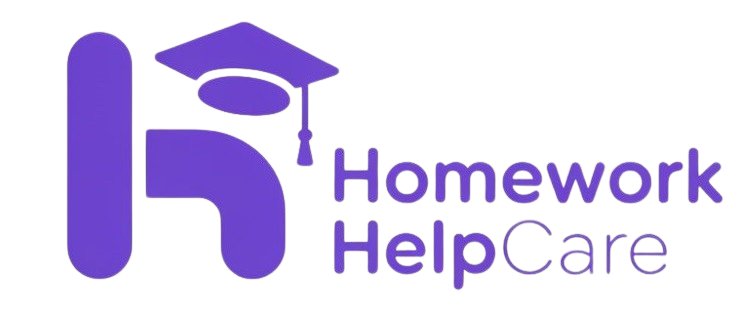Blog
Foreign Language Homework Tips: Practicing Vocabulary Daily
Learning a new language requires consistent practice, and vocabulary building is a fundamental part of this journey. Daily vocabulary practice can significantly accelerate your language learning progress, making homework assignments easier and more effective.
What Makes Daily Vocabulary Practice Essential?
Daily vocabulary practice creates a strong foundation for language learning by reinforcing word recognition and usage. According to research from the University of Cambridge, students who practice vocabulary daily show 30% faster progress than those who study sporadically.
How Does the Brain Process New Vocabulary?
Our brains process and retain new words through repeated exposure. The spacing effect, first identified by psychologist Hermann Ebbinghaus, demonstrates that information reviewed at regular intervals is more likely to transfer to long-term memory. This cognitive principle explains why daily practice proves more effective than cramming before exams.
When you practice vocabulary daily, you:
- Strengthen neural pathways associated with language acquisition
- Reduce the forgetting curve
- Develop better recall mechanisms
- Improve pronunciation through consistent practice
Effective Strategies for Daily Vocabulary Practice
Implementing effective vocabulary practice requires more than just reviewing flashcards. Here are research-backed strategies to optimize your daily practice sessions:
Digital Flashcard Applications
Modern technology offers powerful tools for vocabulary practice. Applications like Anki utilize spaced repetition systems that schedule reviews based on your performance, ensuring you focus on challenging words while saving time on words you already know well.
| App Name | Best For | Special Features |
|---|---|---|
| Anki | Customizable learning | Spaced repetition algorithm |
| Quizlet | Social learning | Collaborative study sets |
| Memrise | Gamified approach | Mnemonic techniques |
| Duolingo | Beginner learners | Daily streak rewards |
Context-Based Learning Methods
Memorizing isolated words often leads to poor retention. Harvard linguist Steven Pinker emphasizes that our brains are wired to learn language in context. Try these methods:
- Read graded readers appropriate for your level
- Watch videos with subtitles in your target language
- Listen to podcasts designed for language learners
- Use new vocabulary in sentence construction exercises
The Word Association Technique
Creating mental connections between words significantly improves retention. A study from Northwestern University
For example, when learning the Spanish word “biblioteca” (library), you might visualize a collection of books (biblio) on a shelf with a technological (teca) organization system.
Creating an Effective Daily Vocabulary Practice Routine
Building a sustainable practice routine requires careful planning and consideration of your learning style, available time, and specific goals.
Time Management Strategies
Finding time for daily practice doesn’t necessarily mean dedicating large blocks of time. Research shows that distributed practice in shorter sessions can be more effective than single long sessions.
- Morning micro-sessions: 5-10 minutes during breakfast
- Commute utilization: Audio practice while traveling
- Lunch break reviews: Quick flashcard sessions
- Evening consolidation: 15-minute review before bed
Measuring Progress and Adjusting Methods
Tracking your vocabulary growth provides motivation and helps identify areas needing improvement. Consider these tracking methods:
| Method | Benefits | Implementation |
|---|---|---|
| Vocabulary journal | Physical record of progress | Note new words with examples |
| Progress tests | Objective measurement | Weekly mini-quizzes |
| Language apps | Automated tracking | Built-in statistics |
| Speaking practice | Practical application | Record conversations |
Technology-Enhanced Learning
Modern language learning apps incorporate adaptive learning algorithms that personalize your vocabulary practice. The Journal of Computer Assisted Learning reports that adaptive learning systems can improve vocabulary acquisition rates by up to 40%.
- Use speech recognition to practice pronunciation
- Set up automated daily reminders
- Utilize cross-platform synchronization for practice anywhere
- Engage with interactive exercises for different learning styles
Overcoming Common Vocabulary Learning Challenges
Even with daily practice, language learners often encounter specific challenges that can impede progress.
Dealing with Vocabulary Plateaus
Many learners experience periods where their vocabulary growth seems to stall. Columbia University language acquisition expert Dr. Susan Boynton recommends these strategies to overcome plateaus:
- Incorporate vocabulary from new subject areas
- Challenge yourself with native-level content in small doses
- Join conversation groups to activate passive vocabulary
- Use newly learned words in writing exercises
Memory Techniques for Difficult Words
Some words simply seem harder to remember than others. These specialized techniques can help:
- Mnemonic devices: Create memorable associations
- Etymology study: Understanding word origins
- Visualization: Create mental images
- Word mapping: Connect related terms
Practical Activities for Daily Vocabulary Practice
Diversifying your practice activities keeps learning engaging and addresses different aspects of vocabulary acquisition.
Integrating Technology in Vocabulary Practice
The Digital Education Review has published multiple studies showing that technology integration enhances vocabulary retention. Consider these tech-powered activities:
- Virtual reality vocabulary exploration: Apps like Mondly VR place you in real-world scenarios
- AI conversation partners: Practice using new words with language bots
- Word games with native speakers: Connect with language exchange partners
- Digital flashcard competitions: Challenge classmates to vocabulary contests
Creative Offline Activities
Not all effective practice requires technology. These offline activities provide valuable reinforcement:
- Label household items with target language words
- Create vocabulary mind maps on paper
- Play word association games with study partners
- Write short stories using your weekly vocabulary list
FAQs About Daily Vocabulary Practice
Studies show that morning learning improves initial encoding while evening review enhances consolidation. Ideally, incorporate both into your routine.
Approximately 10-12 meaningful exposures to a word in different contexts are needed for long-term retention, according to research from the University of Michigan.
Learning similar words separately reduces interference effects, especially for beginners. Advanced learners may benefit from studying related words together to build semantic networks.
Track both recognition (identifying words) and recall (producing words) through periodic self-assessment. Effective practice should improve both skills progressively.

